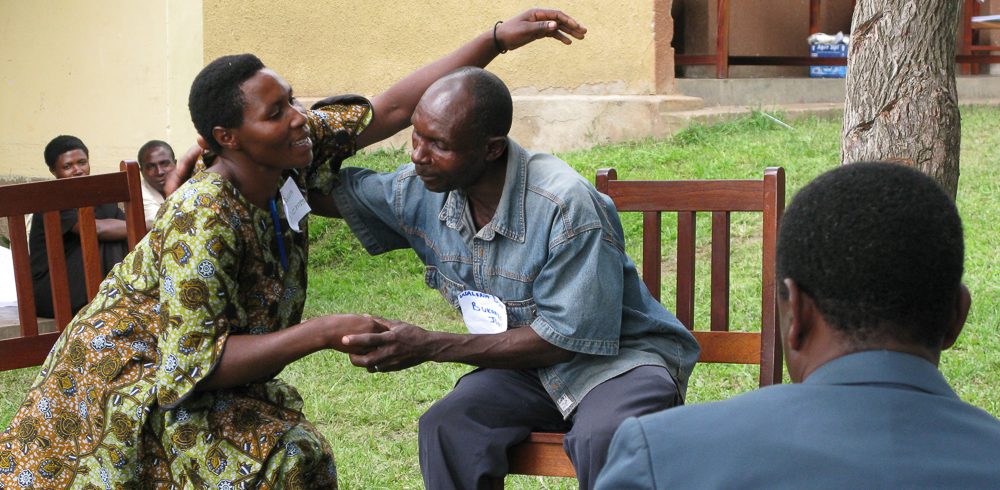Page to be significantly improved and updated 2023.

Gender Empowerment
‘GENDER’ IS SIMPLE: IT MEANS WOMEN AND MEN TREATING EACH OTHER LIKE EQUAL HUMAN BEINGS WITH EQUAL HUMAN RIGHTS AND SOCIAL RESPONSIBILITIES
Once that is clearly understood and followed other things all fall into place. But working out the details of how that understanding can be maintained and mainstreamed in complex realities of development practice and policy requires experience, commitment and a lot of patience.
Gender empowerment
Where women and men are both able to realise their full potential as economic, social and political actors, free from all gender discrimination, for empowerment of themselves, their families, their communities and global humankind. This includes affirmative action for women, and support for men to change those aspects of their behaviour, roles and privileges that currently discriminate against women. It is likely to include different types of support for women and men from different backgrounds depending on other dimensions of disadvantage, and at different levels.


Underlying Principles
Gender is a social construct and can be changed:
- Biological sex differences are very few and are unimportant in terms of determining gender inequality.
- Gender inequalities are socially determined
- As social constructs gender inequalities can be changed
Gender means both women and men:
- Discrimination based on gender affects both women and men adversely.
- Addressing gender inequality to redress discrimination against both women and men requires actions by both women and men to challenge their existing attitudes, privilege and practice.
- Nevertheless in the current situation gender inequality affects women moreadversely than men.
- This justifies prioritizing attention to those inequalities which affect women.
Meta-framework of women’s rights and UN Convention on Elimination of All Forms of Discrimination Against Women (CEDAW)
The CEDAW framework forms the basis of the organisational vision and informs which sorts of actions and strategies emerging from the participatory process are supported. Those actions and trends which reinforce CEDAW eg changes in women’s property rights, decision-making etc are erinforced. Those which infringe on women’s rights eg increased male control of decision-making, expenditure on alcoholism or prostitution etc are discouraged.
The CEDAW framework is used rather than other gender frameworks because it is very concrete and the CEDAW convention has been signed by most governments of countries where gender processes are being implemented. This means that gender cannot be dismissed as an external imposition.
The focus is on five women’s human rights – that should also be enjoyed by men:
- Equality of property rights
- Equality of work and leisure
- Equality of decision-making
- Freedom of association and movement
- Freedom from violence
For further details on the Convention and its implementation see: https://www.un.org/womenwatch/daw/cedaw/

Gender Empowerment Methodology: GALSatScale
Gender empowerment is mainstreamed across all GAMEChange methodology adaptations as an integral and inseparable part of any development programme for men as well as women.
Gender analysis and actions to change gender inequalities at personal, household and community levels are in-built into all facilitation processes and diagram templates. Women and men at all levels: individual, household, community and organisational level do their own visioning, analysis and planning to achieve these visions. This is within an overall context of discussion about gender justice where peer pressure tends to reinforce certain messages and discourage certain other types of behaviour. This is done through using PALS visioning and followed by complementary diagram tools serve to deepen the gender analysis over time.
A gender-focused more in-depth and advanced methodology: Gender Action Learning for Sustainability at Scale (GALS or GALSatScale) to specifically examine gender inequalities and ways of empowering women and men to challenge and change them. The Participatory Gender Review tools can also be used on a large scale for participatory gender advocacy research.
In GAMEchange processes so far there has been little difference between the visions at community-level and CEDAW, even in the very first workshops. It has been observed that organisational staff – including those in Western donor agencies – are often more conservative than women and men in communities using the GALS tools.

Gender Mainstreaming, Leadership and Advocacy
Gender empowerment is mainstreamed across all GAMEChange methodology adaptations as an integral and inseparable part of any development programme for men as well as women, and at all levels.
Women are not a minority but a marginalised majority in most countries, and the overwhelming majority of the more disadvantaged groups and population of the poorest regions. Gender mainstreaming is necessary not only as a human rights issue for women themselves, but the effectiveness and efficiency of most development programmes.

